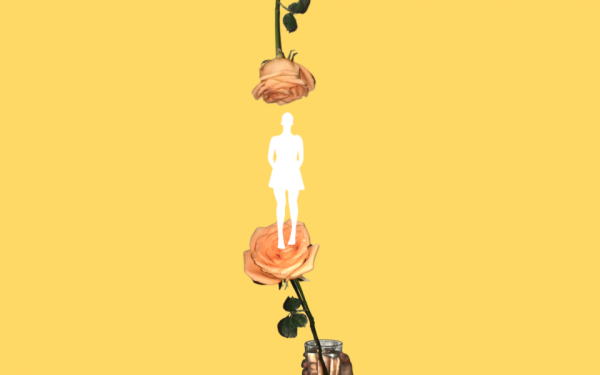Dating Shows Have Killed My Perception of Love
The Constant Struggles With Media’s Portrayal of Relationships
I often lay in bed and wonder about love.
The soul-sucking, numbing sort of love. The simple things like being in a relationship, or trusting someone with your whole heart. It’s already hard to trust in love but when media companies keep promoting unhealthy and often toxic relationships, it’s almost impossible. Slowly, I started to lose hope in ever finding it.
Social media and entertainment companies are largely to blame for the dilemma viewers are facing when watching dating shows and comparing them to real-life scenarios. Netflix has been cashing in the cheques with their plethora of dating shows available for the consumer. Netflix offers over 11 dating shows to choose from. From Too Hot To Handle, to Love Is Blind. The options are only getting weirder every year.
Entertainment companies never fail to show us how far they would go to make some profit. The most recent example of this is the creation of a show on The Learning Channel (TLC) called MILF Manor. The premise of the show is middle-aged women “finding love” with men in their early 20’s. To make matters worse, the eligible bachelors are the contestant's sons.
The TLC show sexualizes mothers and their sons in a very oedipal way by trying to romanticize predatory age-gap relationships and toxic practices for the sake of entertainment. Pushing the narrative that middle-aged women should be dating young men, who are fresh out of highschool, haven’t lived independently, or can’t drink legally worldwide, shouldn’t be something we encourage.
Big age-gap couples often struggle with a power dynamic. The older one, who has more life experience and financial stability, often leads this power play. Whether it’s financial or cultural, the frame of reference for both people is different, leading to a hard time in communication and connection with the other person. To make matters worse, these relationships are often based on sexual desires, rather than emotional connections or compatibility.
There have been many examples throughout the years. Most recently, Leonardo DiCaprio faced backlash for allegedly dating a 19-year-old. This wasn't a first for the 48-year-old actor. In 2022, DiCaprio became the center of a trend on TikTok, that joked he wouldn't date anyone over 25.
As problematic as they are, big age-gap relationships never seem to be called out enough. DiCaprio’s fans will blindly support him and the positive attention only further normalizes large age-gap relationships. Sadly, dating shows do nothing to help and have only increased in popularity in recent years.
According to Deadline, the second season of Too Hot To Handle has been played in over 29 million homes. As successful as the show is, it highlights the struggles of today’s dating life. Most of these shows depict horny adults who failed to sustain healthy relationships and are now on a doomed quest to find manufactured love.
The Bachelorette Canada is a striking example of that. The show is built around the notion of a woman finding love by landing the perfect guy. Unfortunately, misogyny, sexualization and stereotypes are at the centre of the show.
The sexualization of men-albeit older- is as present in The Bachelorette Canada as it is on MILF Manor and strikingly reflects the idea that men are eye candy for women as looks are more important than personality and beauty matters more than brains.
Additionally, The Bachelorette viewership is extremely hypocritical. The female contender will usually get shamed for kissing more than one guy, while the male contenders won't receive similar backlash for the same action. This paints a clear picture that women are the problem via the constant woman vs woman drama, catfights and the overall disturbing edit and image of women in media when at the centre of attention.
These types of shows also completely disrespect the idea of commitment. Two strangers, who have spoken for a short period of time should not be getting engaged or seriously committed to each other. Serious relationships are a sacred union between two people who share a bond, not an experiment that should be televised.
Dating shows push a romanticized version of –often toxic– love to their viewers; contestants may find themselves in a perfect, heart-thumping relationship, and gain fame in the process.
Dating shows also normalize drama and abuse in relationships. The lack of communication, the prevalence of manipulation and the absence of responsibility when a problem occurs.
In a 2013 study, it was revealed that media audiences consumed aggressive amounts of content. The study further points out that higher levels of aggression were associated with viewing aggressive television programs and other media.
In another study, it was found that 54 per cent of respondents "learn about relationships from reality TV shows about love." Learning about love from a dating show is extremely sad. The contestants we see on our TV screens, often too young to have had any stable and healthy relationships, shouldn't serve as examples for viewers to learn from. We live vicariously through the contestants, internalize their behaviour and then reproduce it in our interpersonal relationships.
Life isn’t a movie or a TV show where you win $100,000 for falling in love. Companies like Netflix use us and our inspirations for love to sell us a fantasy. Who doesn’t want to go on a tropical vacation, laze around for a month and relax with conventionally attractive people?
In reality, most of the people on these shows are there for social and financial benefits. Whether it’s promoting their business or social status, contestants try their best to become part of the illustrious Hollywood world of fame, money, or success.
No matter how much you enjoy reality shows and their dramatic edits, always remember that a whole cast and crew stand behind the cameras to produce a show that will profit from the exploitation of others.
Not letting big companies affect your idea of love and relationship will save you a lot of heartaches and help you keep healthy relationships.


_600_832_s.png)

_600_375_90_s_c1.jpg)


